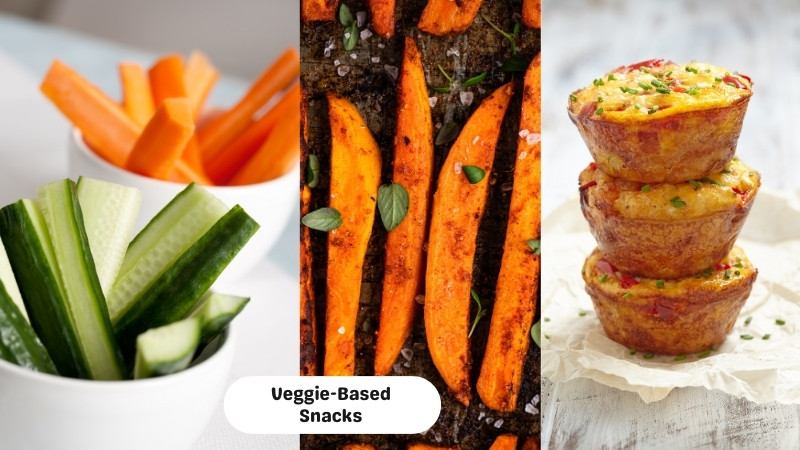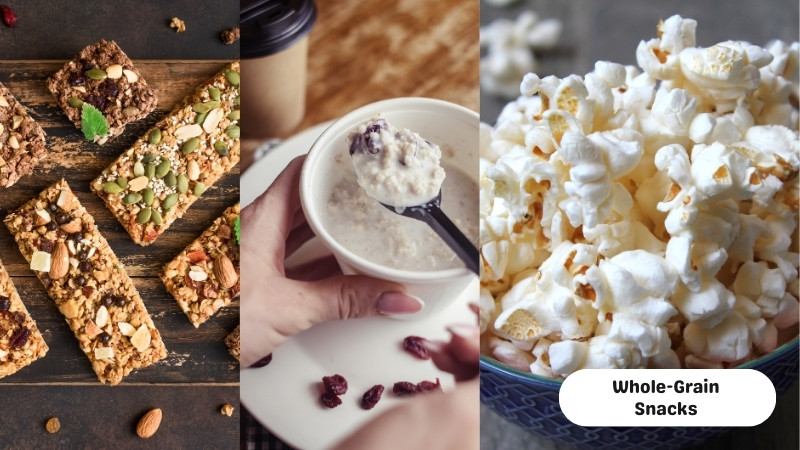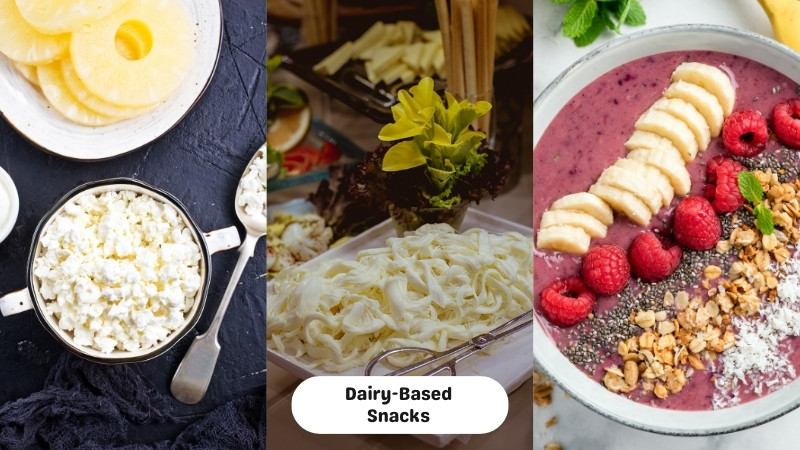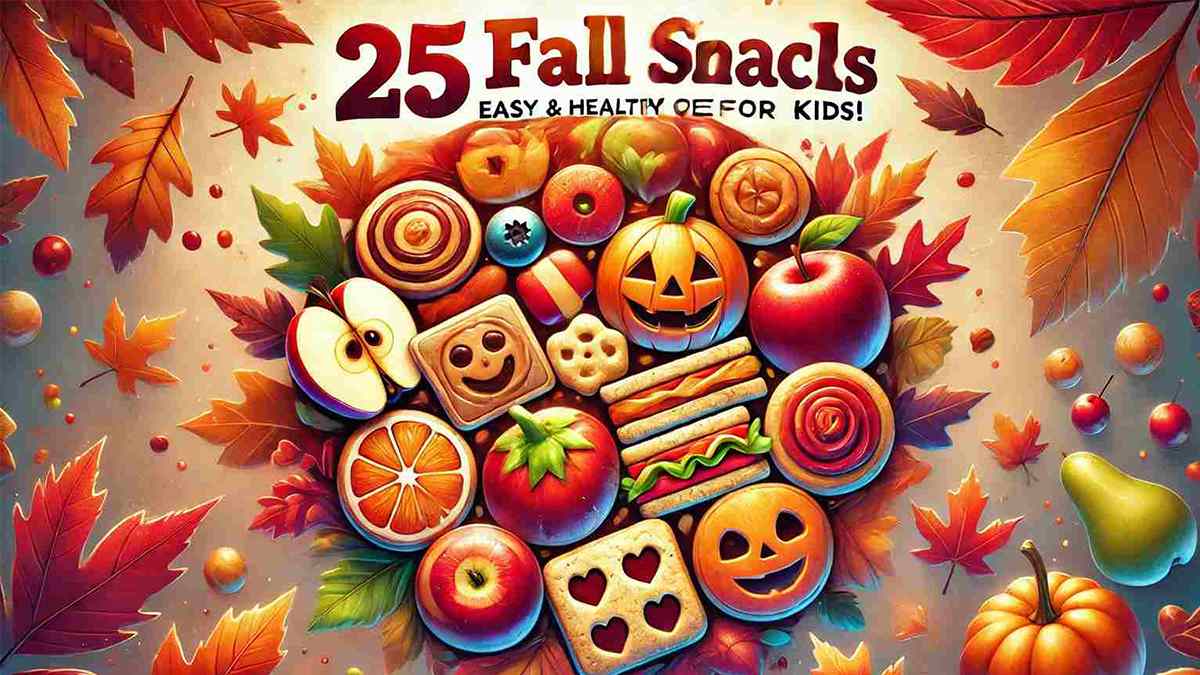Why Healthy Snacks Matter for Kids
As parents, we want our children to grow up healthy, energetic, and focused. Providing them with nutritious snacks is crucial for their overall well-being. Healthy snacks not only satisfy their hunger between meals but also contribute to a balanced diet, ensuring they get the essential nutrients they need for proper growth and development.
The Problem with Processed Snacks
Many packaged snacks marketed to kids are high in sugar, artificial ingredients, and unhealthy fats. Consuming these types of snacks regularly can lead to weight gain, dental issues, and even long-term health problems like type 2 diabetes and heart disease. It’s essential to offer our children wholesome alternatives that provide sustained energy and support their growing bodies and minds.
30 Nutritious and Kid-Friendly Snack Ideas
Overview of Healthy Snack Options
Keeping a variety of healthy snacks on hand is key to ensuring your kids have access to nutritious options when hunger strikes. From sweet to savory and crunchy to creamy, there are plenty of delicious and easy-to-prepare snacks that kids will love.
Fruit-Based Snacks
Fresh Fruit Kabobs
Skewer colorful chunks of fruit like watermelon, pineapple, grapes, and berries for a fun and refreshing snack. Drizzle with a touch of honey or serve with a side of plain yogurt for dipping.
Apple Slices with Nut Butter
Slice apples and serve with a dollop of creamy nut butter for a classic combination of fiber, protein, and healthy fats. For a smoother dip, mix the nut butter with a bit of plain yogurt.
Frozen Banana Pops
Slice bananas in half, insert a popsicle stick into each piece, and freeze. Once frozen, dip in melted dark chocolate and roll in chopped nuts, shredded coconut, or crushed graham crackers for a delightful treat.
Protein-Packed Snacks
Greek Yogurt with Honey and Berries
Spoon Greek yogurt into a bowl and top with fresh or frozen berries. Drizzle with a touch of honey for a protein-rich snack that satisfies a sweet tooth.
Hard-Boiled Eggs
Hard-boiled eggs are a convenient, portable snack that provides high-quality protein to keep kids feeling full and satisfied. Serve with a sprinkle of salt and pepper or a side of whole-grain crackers.
Cheese and Whole-Grain Crackers
Pair cubes of cheddar, mozzarella, or string cheese with whole-grain crackers for a balanced snack that offers protein and fiber.
Veggie-Based Snacks

Carrot and Cucumber Sticks with Hummus
Cut carrots and cucumbers into sticks and serve with a side of creamy hummus. The combination of crunchy veggies and plant-based protein makes for a satisfying and nutritious snack.
Sweet Potato Fries
Slice sweet potatoes into thin wedges, toss with a bit of olive oil and a sprinkle of cinnamon or salt, and bake until crispy. Sweet potato fries are a delicious way to incorporate more veggies into your child’s diet.
Veggie Muffins
Bake muffins packed with grated carrots, zucchini, or spinach for a sneaky way to add more vegetables to your child’s snack. Top with a cream cheese or yogurt frosting for extra appeal.
Whole-Grain Snacks

Homemade Granola Bars
Make your own granola bars with a base of oats, nuts, seeds, and a touch of honey or maple syrup. Cut into bars or bite-sized pieces for a portable and satisfying snack.
Popcorn
Popcorn is a whole grain snack that’s light, crunchy, and satisfying. Air-pop your own and sprinkle with a bit of parmesan cheese, cinnamon, or a dash of salt for a tasty treat.
Oatmeal Cups
Bake individual servings of oatmeal in muffin tins, adding your child’s favorite mix-ins like berries, nuts, or a sprinkle of cinnamon. Oatmeal cups are a great on-the-go breakfast or snack option.
Dairy-Based Snacks

Cottage Cheese with Pineapple
Scoop cottage cheese into a bowl and top with diced fresh or canned pineapple for a refreshing snack that combines protein and natural sweetness.
String Cheese
String cheese is a kid-favorite snack that’s both fun and nutritious. Pair it with whole-grain crackers or fresh fruit for a balanced option.
Smoothie Bowls
Blend together your child’s favorite fruits, yogurt, and a touch of honey or maple syrup for a creamy smoothie. Pour into a bowl and top with granola, sliced fruit, and a sprinkle of chia or flax seeds for a nutrient-dense snack.
Nutritional Considerations for Healthy Snacking
Essential Nutrients to Include in Kids' Snacks
When selecting snacks for your children, aim for options that provide a balance of protein, fiber, vitamins, and minerals. These nutrients support growth, energy levels, and overall health.
Some key nutrients to look for include:
- Protein: Found in dairy products, eggs, nuts, seeds, and legumes
- Fiber: Present in whole grains, fruits, and vegetables
- Vitamins and minerals: Abundant in a variety of fruits and vegetables
Portion Control and Frequency
It’s important to serve snacks in appropriate portions to avoid overeating. As a general guideline, aim for snacks that are about 100-200 calories each. Offer snacks every 2-3 hours, ensuring they don’t replace meals or lead to a lack of appetite at mealtimes.
Safety Tips for Preparing Snacks
Age-Appropriate Snack Ideas
When selecting snacks for younger children, consider their age and developmental stage. Avoid choking hazards like grapes, hot dogs, and hard candies for babies and toddlers. Instead, opt for soft, easy-to-chew options like small pieces of cooked vegetables, soft fruits, and shredded cheese.
For older children, you can introduce more textured snacks like granola bars, whole-grain crackers, and raw veggies with dip. Always supervise young children while they’re eating to ensure their safety.
Food Allergies and Dietary Restrictions
If your child has food allergies or dietary restrictions, be mindful of the ingredients in the snacks you provide. Avoid common allergens like peanuts, tree nuts, dairy, eggs, wheat, soy, and shellfish. When preparing snacks, clean surfaces thoroughly and use separate utensils to prevent cross-contamination.
Tips for Making Healthy Snacks Appealing to Kids
Get Kids Involved in the Kitchen
Engaging your children in the snack preparation process can make them more excited to try new foods. Let them help wash fruits and vegetables, mix ingredients, or assemble their own snacks. Presenting snacks in fun shapes or with dipping sauces can also make them more enticing.
Adding Variety and Creativity
Rotate different snack options to keep things interesting and expose your children to a variety of flavors and textures. Introduce new foods gradually and pair them with familiar favorites to increase acceptance. Offering a selection of healthy snacks and allowing your child to choose their own can also encourage them to try new things.
Conclusion
Providing healthy snacks for kids is an essential part of supporting their growth, energy levels, and overall well-being. By offering a variety of nutritious options and making snack time fun and engaging, you can help your children develop lifelong healthy eating habits. Remember to keep portion sizes appropriate, introduce new foods gradually, and adapt snacks to fit your child’s age and dietary needs. With a little creativity and preparation, you can ensure your kids have access to delicious and nourishing snacks throughout the day.
FAQs
Some great alternatives to sugary snacks include fresh or dried fruit, yogurt, homemade granola bars, popcorn, and veggie-based snacks like carrot sticks and hummus.
Involve your child in the snack preparation process, present snacks in fun shapes or with dipping sauces, and introduce new foods gradually paired with familiar favorites. Offering a selection of healthy options and allowing your child to choose can also encourage them to try new things.
Some quick and easy snack ideas for busy parents include pre-portioned bags of trail mix, string cheese, individual yogurt cups, fresh fruit, and whole-grain crackers with nut butter.
Yes, there are plenty of snack options that cater to various dietary needs. For those with food allergies, avoid common allergens like peanuts, tree nuts, dairy, eggs, wheat, soy, and shellfish. For vegetarian diets, focus on snacks rich in plant-based protein like hummus, nut butters, and bean-based dips.




